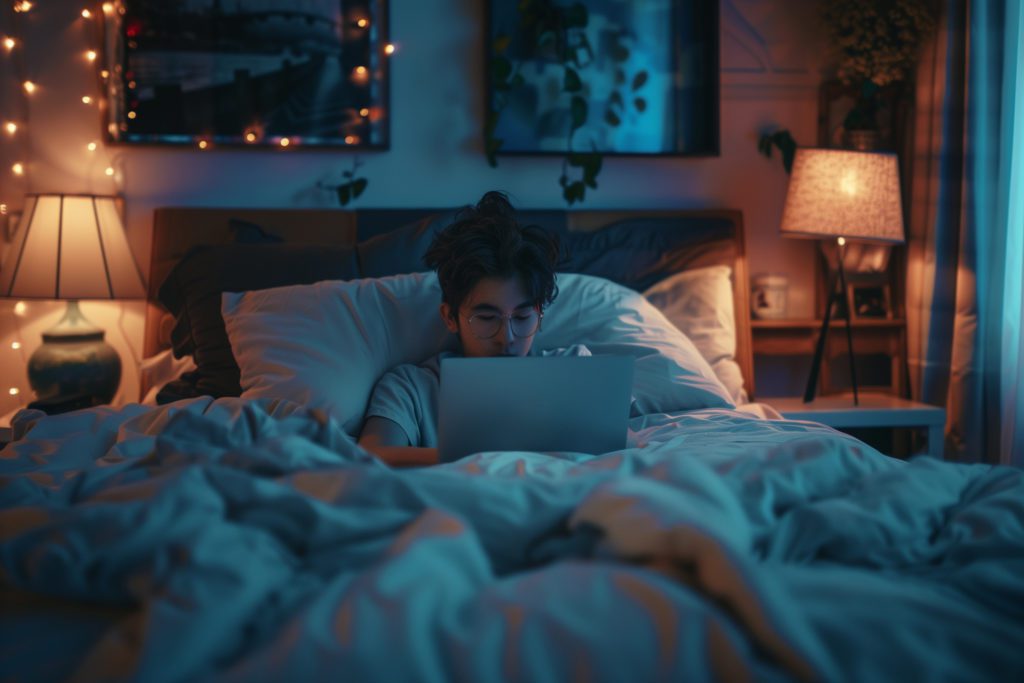
The Impact of Sleep Deprivation on Workplace Performance: Recognizing the Costs of Burnout
Sleep deprivation effects on work are more significant than many realize, involving everything from cognition to emotional well-being of millions globally.

We all know that feeling: dragging ourselves out of bed after a restless night, guzzling coffee like it's our life support, and hoping no one notices the bags under our eyes. Sleep deprivation is a common issue that affects millions of people around the world. But did you know that it can seriously affect your performance at work?
If you've ever struggled to stay awake during a meeting or found yourself zoning out in front of your computer screen, you're not alone. Sleep deprivation effects on work are more significant than many realize, involving everything from cognitive function to emotional well-being.
In this article, we'll discuss how lack of sleep can hinder your workplace performance and why addressing this issue is crucial for both employees and employers.
The Basics of Sleep Deprivation
First things first: what exactly is sleep deprivation? Simply put, it's when you don't get enough sleep. This could be due to stress, busy schedules, or binge-watching your favorite TV show until the wee hours of the morning. Occasional sleep loss might not seem like a big deal, but long-term sleep deprivation can wreak havoc on your health.
When we're sleep-deprived, our bodies and brains don't function at their best. Imagine trying to drive a car with a flat tire—it's possible but not ideal, and you'll probably end up causing more damage in the long run. The same goes for our brains when we're running on empty. We might manage to get through the day, but our performance, mood, and physical health can suffer.
Studies have shown that lack of sleep can lead to a host of health issues, from weakened immune systems to increased risk of chronic conditions like heart disease and diabetes. But perhaps most pressing for many of us is how it affects our daily lives—particularly at work. After all, it's hard to be the office superstar when you're fighting to keep your eyes open at your desk.
Impact on Cognitive Function and Productivity
Let's talk about what really happens when you're sleep-deprived at work.
Sleep deprivation significantly impairs our cognitive functions, making it harder to concentrate, remember, and make decisions. Our brains use sleep as a time to process information and consolidate memories.
Without adequate rest, we're like a computer with too many tabs open—slow, prone to errors, and eventually, crashing.
Research shows that sleep-deprived individuals are more likely to make mistakes and have accidents at work. This can range from minor slip-ups, like sending an email to the wrong person, to serious safety hazards, especially in jobs that require constant attention and quick reflexes.
Moreover, productivity takes a nosedive when we're not well-rested. We might be physically present, but our brains are on vacation. Tasks that normally take minutes can drag on for hours, and the quality of our work can suffer. This not only affects our performance but can also impact our team and overall workplace efficiency. So, the next time you're tempted to pull an all-nighter, remember: sleep deprivation effects on work are no joke!
Emotional and Social Consequences
Ever notice how everything seems a bit more dramatic after a bad night's sleep? That's because lack of sleep messes with our mood regulation, making us more prone to irritability, stress, and even depression.
When we're running low on sleep, our ability to manage stress diminishes. Small annoyances, like a colleague's loud chewing or a slow computer, can feel like the end of the world. This heightened sensitivity can strain workplace relationships, leading to conflicts and a less harmonious work environment. After all, no one wants to work with a grouch, right?
Social interactions also take a hit. Sleep-deprived individuals often find it harder to engage in meaningful conversations and may come off as disinterested or unfriendly. This can impact teamwork and collaboration, which are essential for a productive workplace.
Additionally, chronic sleep deprivation is linked to more serious mental health issues. Prolonged lack of sleep can lead to anxiety and depression, conditions that further hinder workplace performance and overall quality of life.
Long-term Costs of Burnout
Burnout takes things to a whole new level. Burnout is a state of chronic physical and emotional exhaustion, often accompanied by feelings of cynicism and detachment from work. It's like hitting a wall, but instead of bouncing back, you keep getting increasingly worn down.
Burnout doesn't just affect individual employees; it has significant implications for organizations too. The economic costs of burnout are staggering. Companies face decreased productivity, increased absenteeism, and higher turnover rates, all of which can add to substantial financial losses. Moreover, burned-out employees are more likely to make errors, leading to potential safety issues and decreased quality of work.
But the costs aren't just financial. Burnout can derail careers and personal lives. Employees experiencing burnout may find it difficult to advance in their careers as their performance and engagement plummet. On a personal level, the toll of burnout can lead to strained relationships, health problems, and a diminished quality of life.
Strategies to Combat Sleep Deprivation in the Workplace
Lack of sleep and burnout are more like the two sides of the same coin. The psychological stress due to burnout doesn't allow the brain to rest and get quality sleep. On the contrary, lack of sleep significantly reduces a person's capacity to manage work and work-related stress.
Therefore, both these problems often tend to exacerbate each other, leading to a never-ending cycle.
So, what can we do to combat sleep deprivation and its effects on work? Here are some practical tips:
For individuals
- Establish a consistent sleep schedule—yes, even on weekends!
- Create a relaxing bedtime routine to signal to your body that it's time to wind down.
- Limit screen time before bed to reduce blue light exposure.
For employers
- Encourage flexible work hours to allow employees to get adequate rest.
- Create a nap-friendly environment—think comfy nap pods or quiet rooms.
- Promote a culture of work-life balance, discouraging after-hours emails and excessive overtime.
By implementing these strategies, both employees and employers can help mitigate the negative impacts of sleep deprivation. And remember, if you need help tracking your sleep patterns, Pillow can be a valuable tool to ensure you're getting the rest you need.

Written by
Dr Aqsa
As a Medical Doctor, Dr Aqsa, uses her knowledge to craft complex medical information that is understandable to the general public. For years, she has tried to improve health literacy and empower readers with valuable health knowledge through her articles, blog posts, and educational materials.
Download Pillow
Get help
Press & News
Legal
Connect
X (Twitter)
Company
Copyright © Neybox Digital Ltd.



